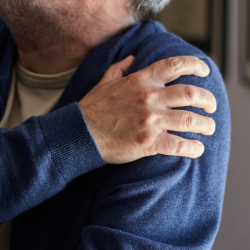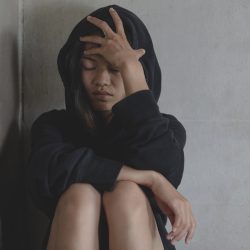20+ Years Experience
Specialist Private Drug Rehab

Codeine addiction is an increasingly prevalent issue that affects individuals and families alike.
As the opioid crisis continues to grow, understanding the signs and symptoms of codeine addiction becomes crucial for those seeking to help themselves or their loved ones.
This blog post will provide you with a comprehensive overview of codeine addiction, its dangers, and the treatment options available to ensure a successful recovery.
Codeine, an opiate drug often prescribed for pain relief, can become highly addictive due to its pleasurable effects and rewarding stimulus.
Its highly addictive nature can be attributed to the changes it induces in brain function and chemistry, leading to tolerance and dependence.
Addiction to codeine may manifest in various ways, such as withdrawal symptoms, prescription drug, abuse, and emotional instability.
Although there is no definitive cure for codeine addiction, several treatment options are available to help individuals overcome addiction and effectively manage pain.
Recognising the factors that contribute to codeine addiction offers valuable insights into its development and potential treatment paths. Some factors that can contribute to codeine addiction include:
Understanding these factors and recognising the signs and symptoms of codeine addiction can be the first step towards recovery and a healthier, addiction-free life.
Derived from morphine, codeine is an opiate drug prescribed for mild to moderate pain relief.
Its potential for addiction arises from its ability to produce a relaxing ‘high’ and alter brain functions, leading to dependence even when the drug is taken solely as a prescription drug to treat mild pain relief.
The pleasurable effects of taking codeine alone, as well as other opiate drugs, can result in a rapid development of tolerance, requiring either higher doses or lower doses, to achieve the same level of satisfaction or relief.
Even a single prescription drug or prescribed set of medications can lead to codeine addiction in a short period.
The highly addictive nature of codeine often necessitates residential rehabilitation for effective treatment.
This type of treatment provides a secure and comfortable environment for detoxification, allowing individuals to safely manage withdrawal symptoms and address the psychological aspects of addiction.
Codeine addiction arises from a variety of factors, including:
Addressing these factors is important in overcoming codeine addiction.
Chronic pain management, social pressure, family history of addiction, and cultural norms are other factors that can contribute to codeine addiction.
As such, it is crucial to consider these factors when addressing codeine addiction and devising a comprehensive treatment plan.
Identifying codeine addiction and seeking appropriate treatment requires awareness of the withdrawal symptoms.
Physical symptoms of codeine withdrawal may include restlessness, irritability, muscle aches, insomnia, nausea, sweating, dilated pupils, and increased heart rate.
Psychological symptoms, on the other hand, may involve anxiety, depression, cravings for codeine, and difficulty concentrating.
Being aware of these codeine withdrawal symptoms can help individuals and their loved ones identify codeine addiction and begin the journey towards recovery.
Once addiction is recognised, various treatment options can be explored to manage these symptoms and address the underlying causes of addiction.
Physical symptoms associated with the codeine withdrawal symptoms can be quite distressing. Individuals with codeine withdrawal symptoms may experience:
The most suitable and best course of action for treating these physical withdrawal symptoms is tailored to the individual, with numerous medical resources, including pain medication, available to treat mild to moderate pain and enhance comfort during these withdrawal symptoms.
Successful recovery hinges on understanding and managing these physical symptoms during the long period of codeine withdrawal symptoms.
A comprehensive treatment plan that includes medical support and guidance can help individuals navigate the challenging process of detoxification.
Codeine withdrawal not only causes physical symptoms but can also have negative consequences that result in psychological distress. Symptoms such as:
Unpleasant symptoms can arise when attempting to cease the usage of a painkiller or medication.
Emotional and psychological symptoms can be particularly challenging to treat painkiller management during withdrawal from drugs, as they can significantly impact an individual’s mental well-being and overall recovery process.
Recognising and addressing these psychological symptoms during the codeine withdrawal symptoms is key.
Seeking professional support, such as therapy and counselling, can help individuals better understand their addiction, develop coping strategies, and work towards long-term recovery.
Codeine abuse poses significant risks to an individual’s health and well-being. These risks include:
Moreover, consuming high doses of codeine or mixing it in high doses or with prolonged use of other sedative substances, such as alcohol, can lead to an increased risk of overdose and life-threatening complications.
Comprehending the dangers of codeine abuse enables individuals addicted to codeine to grasp the severity of their addiction and the potential fallout from continued use.
This awareness can serve as motivation for seeking appropriate addiction treatment, and support to overcome addiction and prevent further harm.
Combining codeine with other substances can be hazardous and potentially life-threatening. Risks include:
Mixing codeine with other drugs, such as alcohol or sedatives, can increase the risk of overdose and mortality, especially when taking codeine inappropriately or without a prescription.
This can also cause augmented sedation, respiratory depression, and drug interactions.
Individuals grappling with codeine addiction need to be conscious of these risks and refrain from mixing or taking codeine with other substances.
Seeking professional help and treatment can help individuals manage their addiction and reduce the likelihood of dangerous drug interactions.
Codeine abuse can have a profound impact on an individual’s mental health. Its harmful effects on brain chemistry can result in mental health issues such as depression, anxiety, and mood disorders.
Prolonged codeine abuse may also increase blood pressure, the likelihood of developing substance use disorders and exacerbate existing mental health conditions.
If you or someone you know is struggling with suffering the impacts of codeine abuse on mental health, it’s important to seek help and support.
Professional help, such as therapy and counselling, can address the psychological aspects of addiction and provide guidance for overcoming codeine addiction and improving mental well-being.
Various treatment options are available to help individuals overcome codeine addiction. These options include:
These treatment options can address both the physical and psychological aspects of addiction. In some cases, inpatient treatment may be necessary for individuals who are unable to cease codeine use and require a secure and comfortable environment for detoxification.
A successful recovery from codeine addiction hinges on selecting the appropriate treatment. By exploring various treatment options and developing a comprehensive plan tailored to the individual’s needs, individuals can embark on their journey towards a healthier, addiction-free life.
Detoxification is the initial step in addressing codeine addiction. The process involves:
Securing professional help for those addicted to codeine for detoxification is crucial for a safe and successful recovery.
A comprehensive treatment plan that includes medical support and guidance can help individuals navigate the challenging process of detoxification and lay the foundation for long-term recovery.
In codeine addiction treatment, therapy and counselling are pivotal, providing addicted individuals with the necessary support, guidance, and resources to conquer their drug addiction.
Therapy assists individuals in understanding the underlying causes of their addiction and developing healthier coping strategies, while counselling sessions provide a secure environment for individuals to express their feelings, address psychological issues, and obtain tailored addiction treatment and plans.
Incorporating therapy and counselling into a comprehensive treatment plan for codeine addiction can be highly beneficial for individuals seeking to overcome their addiction and achieve long-term recovery.
A combination of individual, group, and family therapy can help individuals address the psychological aspects of their addiction and build a strong foundation for a healthier, addiction-free life.
Support groups are essential in codeine addiction treatment, as they create a secure and supportive atmosphere for those battling codeine addiction to communicate their experiences, struggles, and triumphs.
Support groups provide a sense of community and empathy, allowing participants to feel less isolated in their quest for recovery. Additionally, they provide invaluable peer support, encouragement, and accountability.
Participating in support groups and ongoing care can be a vital component of a comprehensive treatment plan for codeine addiction.
Through shared experiences, education, and resources, support groups can help individuals gain a better understanding of their addiction and develop effective coping strategies for long-term recovery.
While assisting a loved one battling codeine addiction can present challenges, recognising the signs and symptoms of addiction and offering encouragement for seeking treatment is of utmost importance.
Changes in behaviour, physical appearance, and financial problems can be indicative of codeine addiction in a loved one.
By being aware of these signs, individuals can take the necessary steps to offer help and support to their loved ones.
Approaching a loved one about their addiction should be done with empathy and understanding, offering support and encouragement to seek treatment.
Providing a listening ear, understanding, and emotional support can go a long way in helping a loved one overcome their addiction and embark on the path to recovery.
Identifying the signs of codeine addiction in others is key to providing the necessary assistance and support. Some signs to look out for include:
Physical changes may involve neglecting one’s personal hygiene, while financial indicators may suggest excessive expenditure of time and funds on taking codeine alone.
Being aware of these signs can help individuals identify codeine addiction in their loved ones and take the necessary steps to offer support and encouragement for seeking treatment.
A comprehensive understanding of the signs and symptoms of codeine addiction can ultimately lead to a more effective intervention and a better chance of recovery.
Initiating a conversation with a loved one about their addiction is a sensitive task. It is important to become informed about codeine addiction, its indicators, and potential outcomes to communicate effectively.
Choosing a quiet and private setting for an open and honest conversation is crucial for ensuring a productive and supportive discussion. Expressing concern using ‘I’ statements can help avoid appearing accusatory or critical.
Being empathetic and understanding, providing specific examples of concerning behaviours, and offering assistance in seeking treatment can be essential components of a successful intervention.
Establishing boundaries and providing ongoing support can help loved ones struggling with codeine addiction take the necessary steps towards recovery and a healthier, addiction-free life.
Codeine is an opioid drug derived from opium poppies. It brings about pain relief and other responses such as relaxation and pleasure, and codeine is an all opiate drug, commonly used in pain medication for the management treat pain and treatment of chronic pain.
However, it can cause tolerance, dependence and toxicity and may not work for everyone due to genetic differences.
8mg of codeine can be highly addictive if taken for a long period of time or abused.
It is important to take this medication as directed by your doctor and be aware that prolonged use or sudden stopping of stop taking codeine without stopping it can cause withdrawal symptoms.
Common signs of codeine addiction include withdrawal symptoms, changes in behaviour, physical appearance, and financial problems.
These signs can be difficult to spot, but if you know what to look for, you can help someone who is struggling with codeine withdrawal symptoms or addiction. For example, codeine withdrawal symptoms may include nausea, sweating
Treatment options for codeine addiction include detoxification, therapy and counselling, support groups, and ongoing care to ensure long-term recovery.
Detoxification is the first step in the recovery process and involves the removal of codeine from the body.
Therapy and counselling can help individuals understand the underlying causes of their addiction and develop strategies to cope with cravings and triggers.
Mixing codeine with heroin and other drugs can lead to overdose, respiratory depression, drug interactions, and even liver damage, posing a significant threat to one’s health.
The risks associated with combining codeine with other drugs are serious and should not be taken lightly.
Taking codeine with other drugs can increase the risk of overdose, respiratory depression, drug interactions, and even liver damage. It is important to be aware of
Codeine addiction is a complex issue that affects individuals and families alike.
Understanding its signs and symptoms, the dangers of abuse, and available treatment options can be crucial for those seeking to help themselves or their loved ones.
By recognising the signs of addiction, seeking appropriate treatment, and offering support and encouragement, individuals can overcome codeine addiction and embark on the path to a healthier, addiction-free life.
There are a range of other services that we can provide. Have a look at the list below for more information:























We Aim To Reply To All Enquiries With-in 24-Hours